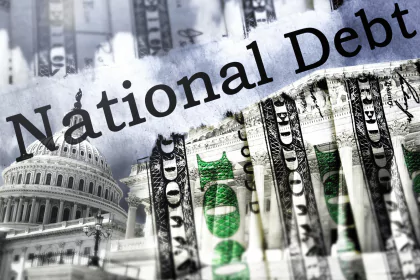In today’s fast-paced financial landscape, budgeting has become more essential than ever. Whether you’re striving to pay off debt, save for a big purchase, or simply ensure a comfortable financial future, effective budgeting can make or break your efforts. But what are the common pitfalls that can derail even the most well-intentioned budget plans? In this article, we explore the five budgeting mistakes you need to avoid to maintain financial health and achieve your goals.
Mistake 1: Not Tracking Your Spending
One of the most prevalent budgeting mistakes is failing to track your spending accurately. When you don’t keep an eye on where your money goes, it’s easy to overspend and lose sight of your financial goals.
The Importance of Tracking Your Spending
Tracking your spending helps you understand your spending habits. It provides a clear picture of where your money is going and highlights areas where you might be overspending. By maintaining a detailed record of your expenditures, you can identify patterns and make necessary adjustments to stay on track.

How to Track Your Spending Effectively
Various tools and methods can help you track your spending effectively. You can use apps like Mint or YNAB (You Need A Budget), which offer features that categorize and monitor your expenses. Alternatively, maintaining a simple spreadsheet or a written journal can also be effective. The key is consistency and regular review.
Real-World Example
Consider Sarah, who struggled with her budget for months. She always felt like her money disappeared too quickly. After starting to track her spending using an app, she discovered she was spending a significant amount on dining out. With this insight, she adjusted her habits, cooked more at home, and managed to save a substantial amount each month.
Mistake 2: Setting Unrealistic Financial Goals
Setting unrealistic financial goals can be just as detrimental as not setting any goals at all. If your goals are too ambitious, you might feel discouraged when you inevitably fall short. Budgeting mistakes like this one are quite common.
The Pitfall of Over-Ambition in Budgeting
While it’s good to aim high, setting goals that are unattainable can lead to frustration and a sense of failure. It’s important to strike a balance between challenging yourself and being realistic about what you can achieve given your current financial situation.
How to Set Realistic Financial Goals
Start by assessing your income, expenses, and financial obligations. Set short-term, mid-term, and long-term goals that are specific, measurable, achievable, relevant, and time-bound (SMART). For instance, if you’re aiming to save $10,000 in a year, break it down into monthly or even weekly savings targets that align with your budget.

For more insights on improving your financial habits, read our article on Revitalize Your Financial Future: 3 Critical Habits to Reconsider Today.
Real-World Example
John wanted to pay off his $20,000 student loan in one year. However, his income and other expenses made this goal unrealistic. After reevaluating, he set a more attainable goal of paying off $5,000 per year, which he could comfortably manage without sacrificing his other financial responsibilities.
Mistake 3: Ignoring Irregular Expenses in Your Budget
Many people forget to account for irregular expenses in their budget. These are expenses that don’t occur every month but can significantly impact your finances when they do arise.
Understanding Irregular Expenses
Irregular expenses include items like car repairs, medical bills, or annual insurance premiums. While they may not be part of your monthly budget, failing to plan for them can lead to financial strain and disrupt your budget.
How to Plan for Irregular Expenses
Create a separate category in your budget for irregular expenses. Estimate their cost over a year, then divide by 12 to include a portion of these expenses in your monthly budget. This way, you’ll be prepared when these costs arise and won’t need to dip into savings or incur debt.
Real-World Example
Emily always felt blindsided by her car insurance premium, which was due annually. By allocating a portion of her monthly budget to this expense, she managed to set aside enough money over the year, ensuring she could pay the premium without stress when the bill arrived.
Mistake 4: Failing to Adjust Your Budget Regularly
A budget should not be a static document. Life changes, and so should your budget. Failing to adjust your budget as your circumstances change can lead to overspending or missed opportunities to save.
The Need for Flexibility in Budgeting
Your financial situation is likely to evolve due to changes in income, expenses, or financial goals. Regularly reviewing and adjusting your budget ensures it remains relevant and effective in helping you manage your finances.
How to Adjust Your Budget
Schedule regular budget reviews, at least quarterly, to assess your financial situation. Look at your income, expenses, and goals to determine if adjustments are necessary. Be proactive in making changes to accommodate new expenses or savings opportunities.
Real-World Example
Mike received a promotion and a raise at work. However, he continued to follow his old budget, missing out on the opportunity to save more and invest. After revisiting his budget, he allocated the extra income towards his retirement fund and an emergency savings account, ensuring his financial health improved with his increased earnings.
Mistake 5: Neglecting to Save for Emergencies
An emergency fund is a crucial component of a healthy budget. Neglecting to save for emergencies can leave you vulnerable to financial shocks.
The Importance of an Emergency Fund
An emergency fund provides a financial safety net for unexpected expenses like medical emergencies, job loss, or urgent home repairs. Without this cushion, you might have to rely on credit cards or loans, which can lead to debt.

How to Build an Emergency Fund
Start small if necessary, but aim to save at least three to six months’ worth of living expenses. Automate your savings to ensure consistency, and consider keeping your emergency fund in a separate, easily accessible savings account.
Real-World Example
Anna didn’t have an emergency fund when her water heater broke down unexpectedly. She had to use a credit card to cover the cost, resulting in high-interest debt. After this experience, she started building an emergency fund and felt more secure knowing she could handle future unexpected expenses without financial strain.
Conclusion
Avoiding common budgeting mistakes can significantly enhance your financial stability and peace of mind. By tracking your spending, setting realistic financial goals, planning for irregular expenses, adjusting your budget regularly, and saving for emergencies, you can build a robust financial foundation. These proactive steps not only help you avoid financial pitfalls but also empower you to achieve your financial goals with confidence.
FAQ — Popular Questions and Answers
You can use budgeting apps like Mint or YNAB, maintain a spreadsheet, or keep a written journal to consistently monitor and categorize your expenses.
Reevaluate your goals to ensure they are realistic. Break them down into smaller, more manageable targets that align with your current financial situation.
Planning for irregular expenses helps you avoid financial strain when these costs arise. By including a portion of these expenses in your monthly budget, you can manage them without dipping into savings or incurring debt.
You should review and adjust your budget at least quarterly to account for changes in income, expenses, or financial goals, ensuring it remains effective and relevant.
Aim to save at least three to six months’ worth of living expenses in an easily accessible savings account to provide a financial safety net for unexpected events.












